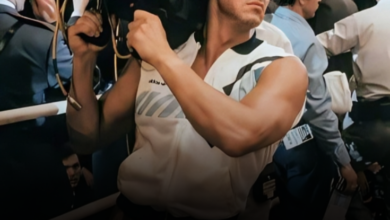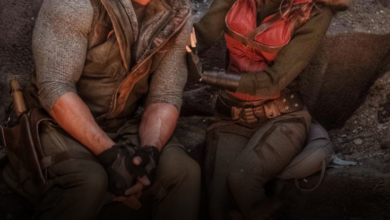Shirley MacLaine Shares Why She Turned Down Audrey Hepburn’s Iconic Breakfast at Tiffany’s Role—And What She Thinks Now
OPINION: This article may contain commentary which reflects the author's opinion.
Shirley MacLaine, the Oscar-nominated actress known for her roles in films like The Apartment and Two Loves, recently shared her mixed feelings about a major career decision: turning down the iconic role of Holly Golightly in Breakfast at Tiffany’s. The role, famously played by Audrey Hepburn, earned Hepburn an Oscar nomination and cemented her status as a Hollywood legend. In a series of interviews, MacLaine reflected on her choice and expressed a blend of regret and acceptance, revealing the personal and professional factors that influenced her decision.
The Offer and Reasons for Turning Down the Role
In 1961, MacLaine, fresh off her Oscar nomination for The Apartment (1960), was offered the role of the eccentric socialite Holly Golightly in the film adaptation of Truman Capote’s novella Breakfast at Tiffany’s. The character, portrayed by Audrey Hepburn, would go on to become one of the most beloved roles in film history. However, MacLaine turned down the role, citing a combination of personal discomfort and professional reservations.
In her memoir and recent interviews, MacLaine explained that she wasn’t keen on the physical demands the role entailed. “In 1961, they offered me the role of Holly Golightly in Breakfast at Tiffany’s, but I turned it down because I didn’t want to have to worry about my weight to be able to wear all those outfits and do all those fittings,” she recalled. “I legendarily hated fittings. I also didn’t think it was a very good script.”
Her comments reflect a blend of practical concerns—discomfort with the wardrobe fittings and the pressure to maintain a certain appearance—alongside a critical view of the screenplay, which deviated from Capote’s original work. The film’s script was written by George Axelrod and John Frankenheimer before director Blake Edwards took over, and MacLaine didn’t feel it lived up to her expectations.
Summary of Reasons for Turning Down the Role:
| Reason | Details |
|---|---|
| Dislike of Fittings | MacLaine found the extensive wardrobe fittings burdensome. |
| Weight Concerns | She didn’t want to have to manage her weight to fit into outfits. |
| Script Perception | MacLaine felt the script wasn’t strong and didn’t live up to expectations. |
Current Reflections and Regret
Years later, MacLaine’s feelings about turning down the role are tinged with both regret and acceptance. In an interview with People, she shared, “I wish I’d had the patience for those wardrobe fittings.” Her acknowledgment of this missed opportunity suggests that, in hindsight, she may have been too quick to turn down the role.
However, in an interview with Entertainment Weekly, MacLaine softened her regret, saying, “At one point, though, I did think, I should have done that and stayed thin, but I don’t really regret it.” This sentiment indicates that while she sees the opportunity as a missed one, she has come to terms with her decision, likely because of her subsequent successes and satisfaction with her career choices.
An interesting detail that has persisted over the years is that MacLaine has never seen Breakfast at Tiffany’s. “I never saw it. I haven’t seen it. I don’t know because I still think it’s about wardrobe,” she said. This statement further highlights how her initial reasons for turning down the role have shaped her perception of the film, even decades after its release.
Connection with Audrey Hepburn
One aspect of MacLaine’s career that somewhat mitigates the regret of turning down Breakfast at Tiffany’s is her working relationship with Audrey Hepburn. The two actresses starred together in The Children’s Hour (1961), the same year Breakfast at Tiffany’s was released. In her memoir, MacLaine described the experience fondly, noting, “I adored working with Hepburn. She taught me a little about dressing; I taught her a little about cussing.” Their mutual respect and friendship developed during this time, offering MacLaine a unique connection with Hepburn, despite not having worked together on the Tiffany’s film.
MacLaine also acknowledged their shared background in ballet, which fostered a sense of camaraderie. She described their relationship as that of “old friends,” which likely softened the blow of missing out on the Tiffany’s role. Their friendship not only provided a different kind of professional bond but also allowed MacLaine to experience Hepburn’s iconic influence firsthand.
Broader Implications and Hollywood Context
MacLaine’s decision to turn down Breakfast at Tiffany’s is part of a larger pattern in Hollywood, where actresses faced intense pressure regarding their appearance, often at the cost of their artistic or personal preferences. Truman Capote, the novella’s author, famously wanted Marilyn Monroe for the role, believing she embodied the character’s essence. Monroe, however, declined the role in favor of The Misfits (1961), which would become her final film. MacLaine’s choice to pass on the part reflects the era’s focus on physical presentation, especially for leading female roles, and offers valuable insight into the tough personal decisions actresses had to make.
In addition to MacLaine, other actresses such as Kim Novak were also reportedly considered for the role of Holly Golightly. The competitive nature of casting during this time underscores the high stakes and personal considerations that shaped the careers of many Hollywood stars.
Conclusion
Shirley MacLaine’s reflection on turning down the iconic role of Holly Golightly reveals the complex intersection of professional ambition, personal insecurities, and the societal pressures placed on actresses in the 1960s. While MacLaine may occasionally regret not accepting the role, her decision was shaped by factors that made sense at the time, including concerns about her appearance and the script. Despite this, her relationship with Audrey Hepburn and her subsequent career achievements demonstrate that MacLaine has found fulfillment in other ways. Breakfast at Tiffany’s remains an iconic film, but MacLaine’s career, which has spanned decades and earned her numerous accolades, proves that her legacy is just as significant.



